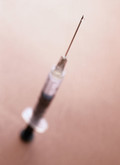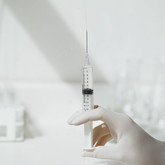Biosimilars/Research
|
Posted 12/03/2021
In the last 20 years, biological drugs have become the mainstream therapy for patients affected by moderately-to-severely active inflammatory bowel disease (IBD), even though they are associated with a significant increase in health-related costs. After the expiry of patents on originator drugs, the advent of antitumour necrosis factor alfa (TNF-α) biosimilars resulted in considerable cost-savings and increased patients’ access to these drugs. After having completed registration trials in rheumatic diseases [1, 2], the infliximab biosimilar CT P13 obtained approval based on a comprehensive comparability exercise, for all other indications, including IBD. Accordingly, physicians started to increasingly prescribe biosimilars for patients with IBD – including those that were both anti-TNF-α naïve and experienced. There is growing evidence that early introduction of biological therapy in IBD is associated with more favourable outcomes in the medium to long term. Keeping that in mind, it follows that the advent of biosimilars has the potential to allow more patients to have access to biological therapy at an earlier stage of disease, which could contribute to prevent disease progression and damage accumulation, with a consequential improvement in patients’ quality of life.






















